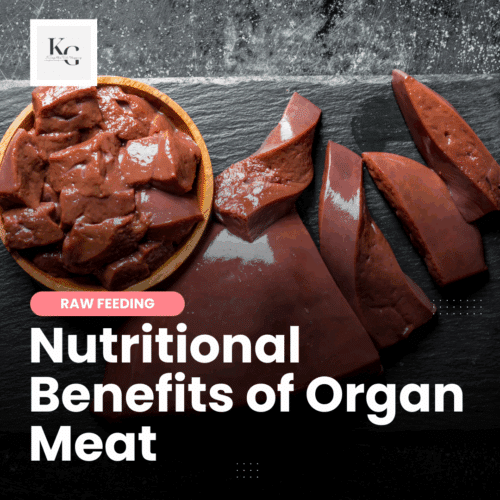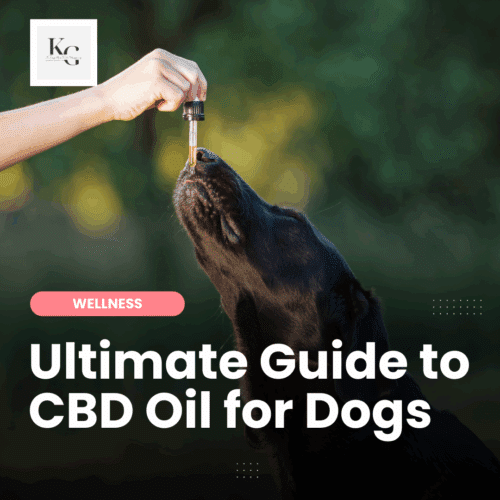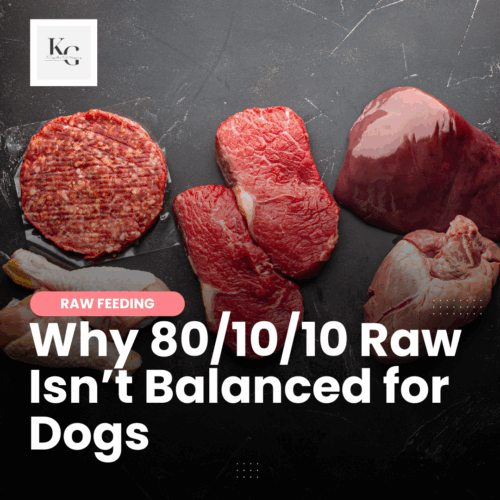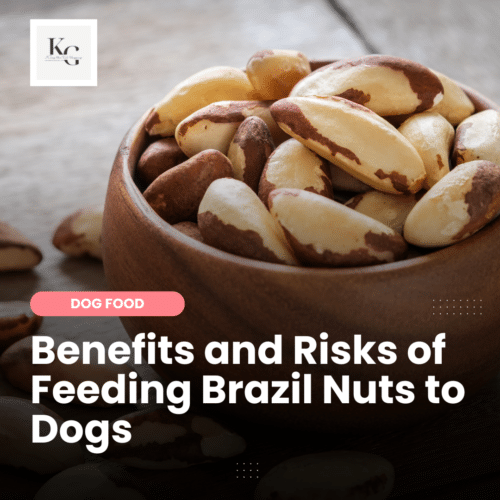Keep the Tail Wagging is supported by pet parents. I occasionally earn a commission (at no additional cost to you) when you click through an affiliate link to one of my favorite products. Thank you for your support. Read More
You're not alone if your dog has been scratching, biting, or licking at their skin more than usual. Itchy skin is one of pet owners' most common complaints, and various factors can be the cause. While the occasional scratch is normal, persistent itching can indicate an underlying issue that needs attention. In this article, we’ll explore the possible causes of itchy skin in dogs, the importance of a fresh food diet, and how feeding raw food can help reduce skin irritation.
Common Causes of Itchy Skin in Dogs
There are numerous reasons why a dog may experience itchy skin, ranging from allergies to infections. Let’s break down the most common culprits:
1. Allergies
Like humans, dogs can suffer from environmental, food, and flea allergies, triggering itching.
- Environmental Allergies: Pollen, mold, dust mites, and other airborne irritants can make your dog’s skin inflamed and itchy. These seasonal allergens often cause itching around the face, paws, ears, and belly.
- Food Allergies: Certain proteins or other ingredients in commercial and homemade dog food may cause allergic reactions in dogs, leading to skin rashes, ear infections, and excessive itching.
- Flea Allergies: Flea bites are one of dogs' most common causes of itchy skin. Even if you don’t see fleas, the saliva from flea bites can cause an allergic reaction, leading to intense itching and irritation.
2. Dry Skin
Dry or flaky skin is often caused by environmental factors such as cold weather or low humidity, which can strip moisture from your dog’s skin and coat. This condition can lead to excessive scratching and discomfort.
3. Skin Infections
Both bacterial and fungal infections can cause itchy skin. Yeast infections, in particular, are common in dogs with allergies or those with moist skin folds, such as in their ears or paws. These infections can be highly uncomfortable and require veterinary attention.
4. Parasites
Mites, ticks, and lice are other external parasites that can lead to itching. Mange, caused by tiny mites, is a particularly common condition that results in hair loss and severe itching. Ticks and lice can also cause localized irritation and itching.
5. Hormonal Imbalances
Conditions like hypothyroidism or Cushing's disease can affect your dog’s skin health. Hormonal imbalances often lead to dry, flaky skin, and a dull coat, which can make itching worse.
6. Contact Dermatitis
If your dog has been in contact with an irritating substance such as harsh chemicals, cleaning products, or certain plants, it could develop contact dermatitis. This condition causes inflammation and itching, usually localized to areas where the irritant came into contact with the skin.
The Role of Fresh Food in Skin Health
One of the most effective ways to help alleviate itchy skin in dogs is by providing a diet that supports overall skin health. Traditional commercial dog foods often contain fillers, preservatives, and low-quality ingredients that may exacerbate skin issues. A raw, fresh food diet offers a more biologically appropriate alternative, packed with nutrients that promote healthy skin and a shiny coat.
Why Fresh Food Matters for Skin Health
- Omega-3 and Omega-6 Fatty Acids: These essential fatty acids are crucial for reducing inflammation and maintaining healthy skin. Omega-3s, in particular, help to soothe itching and reduce the severity of allergic reactions. Omega-6 fatty acids contribute to maintaining a healthy coat and skin barrier function.
- Higher Bioavailability of Nutrients: Raw food retains more of its natural vitamins, minerals, and enzymes compared to processed kibble. Nutrients like vitamin E, zinc, and biotin are essential for skin health, and feeding a fresh diet ensures your dog is getting these nutrients in their most natural, bioavailable form.
- Reduced Exposure to Allergens: By feeding your dog a fresh food diet, you can control the ingredients in their meals. If food allergies are contributing to your dog’s itchy skin, you can easily eliminate common allergens like grains, soy, or artificial additives.
- Improved Gut Health: Many skin issues stem from gut imbalances. Raw food, with its natural probiotics, can help maintain a healthy gut microbiome, which in turn supports immune function and reduces inflammation that could lead to skin irritation.
Whole Foods That May Help Reduce Itchy Skin in Dogs
When feeding a raw diet, it’s important to choose whole foods that not only provide necessary nutrients but also target specific skin concerns. Here are some whole foods known to help reduce itching and promote healthy skin:
1. Fatty Fish (Salmon, Sardines, Mackerel)
Fatty fish are rich in omega-3 fatty acids, which help reduce inflammation and promote a healthy, shiny coat. Regular inclusion of these fish in your dog’s diet can significantly improve skin health and reduce itchiness associated with allergies or dry skin.
2. Liver (Beef, Chicken, or Pork)
Liver is an excellent source of vitamin A, iron, and zinc, all of which are vital for skin repair and healthy coat maintenance. Vitamin A, in particular, plays a crucial role in regulating cell turnover and preventing dry, flaky skin.
3. Eggs
Eggs are packed with high-quality protein, omega-3 fatty acids, and biotin, a B vitamin that supports skin health. The omega-3s help soothe irritated skin, while biotin promotes a healthy coat.
4. Carrots
Carrots are rich in beta-carotene, which is converted to vitamin A in the body. Vitamin A is essential for maintaining healthy skin and can help reduce dry skin and irritation. Carrots also provide fiber, which supports digestive health, another key factor in reducing skin problems caused by allergies.
5. Sweet Potatoes
Sweet potatoes are a great source of antioxidants and beta-carotene. Rich in vitamins A and C, they help strengthen the skin’s barrier function, making it more resistant to environmental irritants and reducing inflammation.
6. Pumpkin
Pumpkin is not only a great source of fiber, which can help regulate your dog’s digestion, but it also contains beta-carotene and vitamin E. Both nutrients are vital for maintaining healthy, moisturized skin.
7. Coconut Oil
Coconut oil is known for its anti-inflammatory and antimicrobial properties. It helps soothe irritated skin, reduces dryness, and can even be applied topically for localized relief from itching.
8. Spinach and Kale
Leafy greens like spinach and kale are full of antioxidants, vitamins A, C, and E, and minerals like iron and calcium. These nutrients help reduce oxidative stress and inflammation in the skin, supporting overall skin health.
Sample Raw Diet for Skin Health
Here’s a simple, balanced raw food recipe that includes ingredients known to promote healthy skin and reduce itchiness:
Salmon and Sweet Potato Raw Dog Food Recipe
- Salmon (muscle meat): 500g
- Salmon (skin and bones): 100g
- Liver (beef or chicken): 100g
- Sweet Potato (cooked and mashed): 100g
- Carrot (grated): 50g
- Spinach (chopped): 50g
- Egg (whole): 1 large
- Coconut Oil: 1 tsp
Instructions:
- Grind or chop the salmon (including skin and bones), liver, and egg.
- Mix in the mashed sweet potato, grated carrot, chopped spinach, and coconut oil.
- Portion the meal based on your dog’s weight (typically 2-3% of their body weight daily).
- Serve fresh or freeze for later use.
Conclusion
Itchy skin in dogs can be a frustrating and uncomfortable issue, but understanding the causes and taking a proactive approach with diet can make a significant difference. By feeding a fresh, raw diet, you provide your dog with the essential nutrients needed to maintain a healthy, irritation-free coat. Whether your dog’s itchy skin is due to allergies, dry skin, or food sensitivities, switching to a raw, whole food diet could be the solution to relieving their discomfort and improving their overall health. Always consult with your veterinarian before making significant changes to your dog’s diet, especially if they are experiencing persistent skin issues.
















I no longer give our dogs flax seed; I’ll have to update this post. Today, I give our dogs Bonnie & Clyde fish oil and a digestive supplement called FullBucket. Those supplements combined with a raw food diet cured Rodrigo’s itchy paws about 99%. When his paws are bothering him, I wipe them down with a 50/50 mixture of organic apple cider vinegar and water, dry them off, and massage coconut oil onto them. I only do the coconut oil part when we’re turning in for the night and he won’t be going outside again.
How much flax seed did you give your dogs? I have a 70lb mixed breed who eats 1 1/2 cups of food two times a day.
In my experience the most consistently effective supplement is Extra Virgin Salmon Oil because of its purity and high omega-3 fatty acid content. I used to give my dog, a little amount salmon oil every day.
Nice article on . Gave me food for thought (no pun intended!) onalleviating itchy skin in dog. I too am a great fan of Blue Buffalo products, particularly their Freedom Grain-Free Chicken Recipe.
Hi Kimberly,
My bichon first got bright red paws when he was about 6 months old. Thankfully my Vet is older and very experienced. Instead of expensive testing, he recommended a very inexpensive anti-histamine that worked like a dream. Then when the ground froze up, the paws never got red. It’s only on wet grass, esp. fresh cut grass, that his paws turn red.
I am lucky to live right beside a huge park that includes woodlands and the river. My dogs have never been walked on the street, hence no salt!
All the best,
Nancy and the 2 bichons and PWD
Our dog is similar. But he has trouble in the winter when it gets too cold too; so we limit his time in the frost and snow. We’e found that rinsing his paws regularly help.
My white bichon gets red paws every spring from the grass. He is fine all winter.
I’ve heard from many people that switching to a grain free diet made a difference. My thought is that if it works and your dog is getting good nutrition, then go for it! Thanks for sharing!
Kimberly
We have our dogs on a grain-free diet, due to our golden retriever’s tendency to get itchy. (Currently, they eat the pork formula of Precise Holistic Complete.) However, the diet has never been a cure-all, and we still have to give him benadryl (or the generic Walfinate) pretty regularly. One of the vets at the office we go to insists that there’s very little connection between food and itchy skin, but we steer clear of the grains and chicken, anyway.
Really? Grass and snow, wouldn’t make a connection. To me those are completely different substances, unless, of course, contaminated by some common crap.
For Rodrigo, he’s the common denominator. Our vet shared that many dogs have sensitivities to grass starting in the spring and the snow. The salt from salt water at the beach is just irritating for already sensitive paws. Plus it’s yummy, encouraging more licking. I’ve found that if I rinse off his paws on days when they’re going to be irritated and put some salve on them (more in the winter season) then he feels loads better. Plus our vet approved Benedryl, 1mg per body weight, on days when he’s really bothered (grass days).
I’d be curious what do freshly cut grass, salt water and snow (unless salted) in common … ?
So very true, Jana
Our Rodrigo gets itchy paws for 3 reason: fresh cut grass, salt water at the beach, and long exposure in the snow. No diet change is going to do this, so we have other steps to help us that were approved by our veterinarian. We’re lucky that our dogs don’t have any food allergies to contend with; that has to be frustrating for dog owners to figure out.
Kimberly
Thanks for the recommendation, Peggy!
California Natural venison formula; here’s a link just in case anyone wants to check it out:
California Naturals GF Venison Dry Dog Food 15lb
I think that here is the thing. These are some good options and it certainly won’t hurt to try.
Dogs can be itchy for a variety of reasons, though, and depending on the cause, what works for one dog might not work for another.
For example, if food allergy or intolerance is involved, the best diet won’t help if it does contain the offending ingredient(s).
When the liver is involved, then liver-supporting or liver-cleansing diet or supplementation will work best.
Some things are generally universal, such as omega-3 supplementation is likely to help or make matters matter regardless of the cause. Cartenoids, zinc, vitamin E complex …
I worked with the veterinarian at Natura and he recommended California Natural venison formula for Brooks’ itchy skin, and it’s worked great!